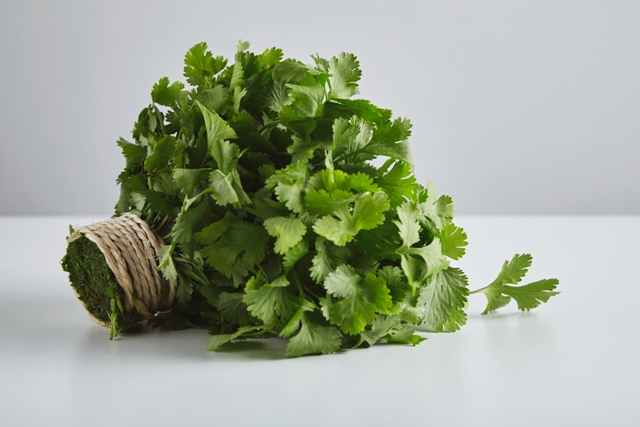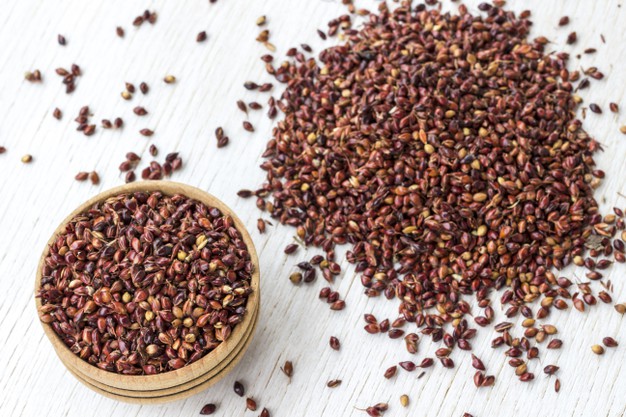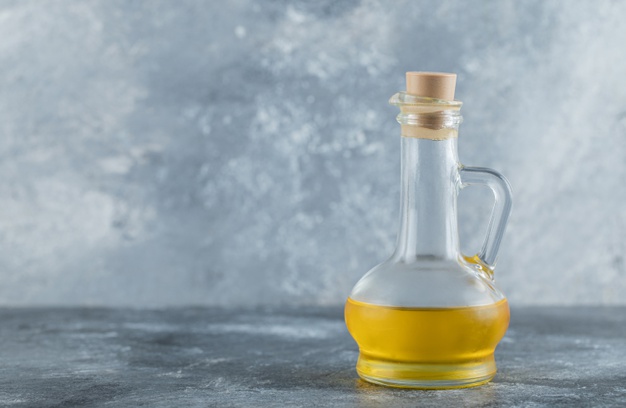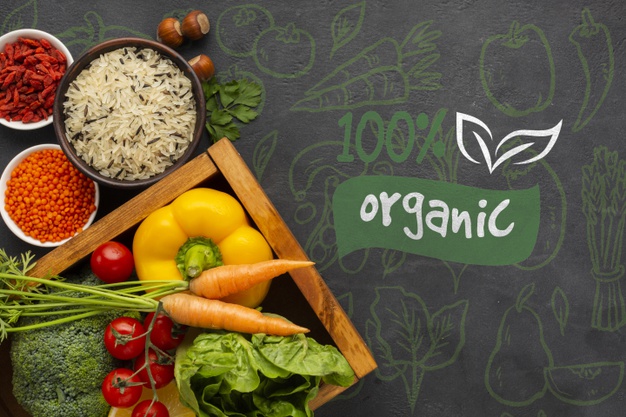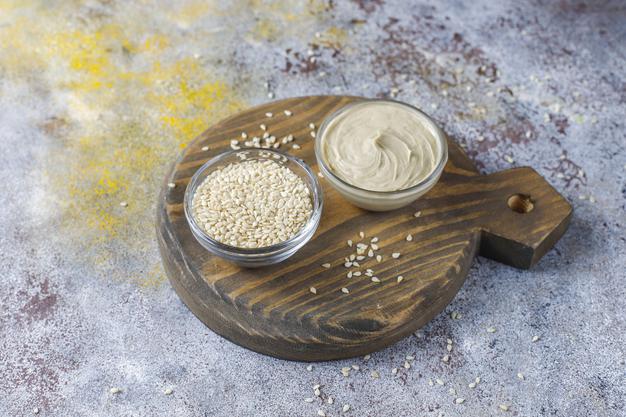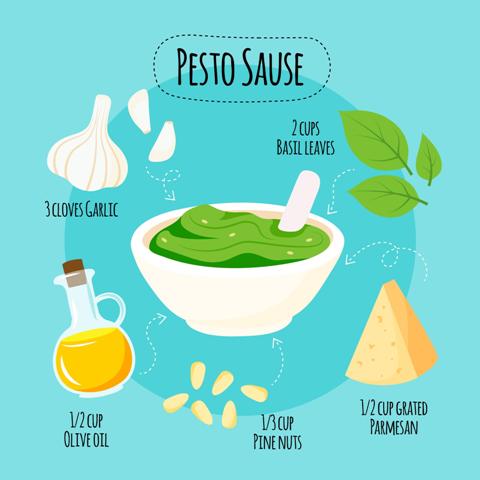Parsley is a healthy green leafy vegetable that has been traditionally used for various therapeutic purposes. It is loaded with various important nutrients that offer numerous health benefits
Nutritional profile
- It contains lesser amount of carbohydrates
- It is rich in fibre
- It contains enough moisture
- It is packed with various imperative micronutrients like Vitamin C, Vitamin K, B Vitamins, calcium, phosphorus, copper, zinc, manganese, potassium and iron
- It contains flavonoids as well that are responsible for exerting antioxidant, anti-inflammatory, anti-carcinogenic and antimicrobial activity
Biological activity
Antioxidant activity
- It is loaded with antioxidants that help in protecting the body from the harmful effects of free radicals as antioxidants are responsible for neutralising free radicals in body
- It helps to reduce oxidative stress as well, which ultimately minimises the risk of developing various chronic diseases
- It helps to prevent cellular damages too
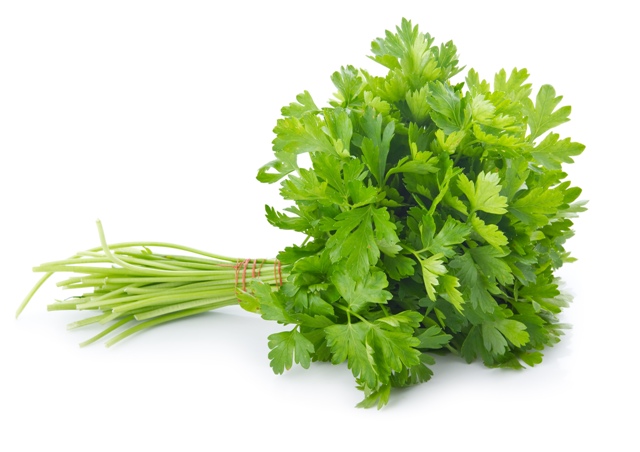
Anti-inflammatory activity
- It is very useful for preventing long term inflammation
- It has seen that its micronutrients and phytonutrients components are accountable for exerting anti-inflammatory activity that help in preventing inflammation by reducing the concentration of inflammatory markers in body
- It is also associated with preventing swelling and pain

Anti-carcinogenic activity
- Its consumption is very useful for reducing the prevalence of carcinoma as it has the ability to fight against cancer cells
- It contains various micronutrients and phytonutrients that are responsible for exhibiting anti-carcinogenic activity
- It is extremely rich in flavonoids, which are accountable for inhibiting cancerous cell growth and also help in minimising oxidative stress, which is also considered as an important feature accountable for reducing the susceptibility of cancers because oxidative stress is believed to be one of the leading causes of cancers
- Apigenin is an important flavonoid present in parsley responsible for killing cancerous cells
- It helps in inducing cellular proliferation that is also associated with suppressing the growth of cancerous cells in body
- It helps to prevent metastasis as well
- Luteolin is another important component of parsley that help in reducing the risk of developing colorectal cancer
- It is also related with minimising the risk of developing prostate, breast, and skin cancer
- Its consumption is also related with hindering tumour cells growth and helps in decreasing the size of tumour cells as well
Antimicrobial activity
- It has been traditionally used as an imperative therapeutic substance for fighting against germs because it exerts potent antimicrobial activity that helps in hindering the growth of microbes within host as a result reduces the prevalence of infectious diseases
- It is also very effective for exhibiting antibacterial activity that helps to hinder the growth of various pathogenic bacteria. It is very effective against Listeria monocytogenes as well as Staphylococcus aureus
- It helps to prevent the growth of fungus as well. It mainly helps to protect the body against Trichoderma viride and Penicillium ochrochloron

Hypoglycaemic activity
- Its consumption is very useful for those individual who suffer from diabetes because it helps in exerting potent hypoglycaemic activity
- Myristicin is an important antioxidant found in parsley that is responsible for regulating blood sugar level
- It is also associated with reducing insulin resistance as a result helps in stabilising blood sugar concentration
Health benefits
Role on immunity
- Consumption of parsley is considered as a healthy choice for boosting up the overall immunity
- Its antioxidant activity is responsible for protecting every immune cell from free radical induced oxidative damages as a result helps in improving their activity, which ultimately helps to improve the resistance power of the body
- Its Vitamin C content is also accountable for improving the immunity of the body as it helps in stimulating the production of WBC that helps to make the body able to fight against infections
- Moreover for obtaining a healthy and active immune system one should consume parsley

Role on hepatic health
- It is considered as a super food for liver
- Individual suffer from hepatic disorders should consume parsley in order to improving their symptoms
- Its fibre content is responsible for reducing the concentration of cholesterol in body, which ultimately helps in reducing the prevalence of hepatic cell necrosis by inhibiting fatty infiltration of hepatic cells as a result helps in promoting their activity, which subsequently improves overall health of liver
- It is also associated with protecting hepatic cells from oxidative and inflammatory damages
- It helps in reducing the prevalence of gall stone as well
- Whereas consumption of parsley is really very useful for boosting up the overall metabolism my making the liver healthy and active
Role on renal health
- Its consumption is extremely useful for promoting overall health and activity of kidney
- It acts as an imperative diuretic that helps in removing germs, toxins as well as waste from body by enhancing urination as a result helps to clean the body
- It is also associated with exerting nephroprotective effects that help to protect every nephron from damages as a result helps in promoting their functionality

Role on skeletal system

- Parsley is composed of all of those nutrients, which are essentially required by the body for a healthy skeletal system
- It contains adequate amount of calcium and phosphorus that help in healthy bone formation
- Its calcium and phosphorus components are also accountable for bone mineralisation as a result helps in improving bone density
- It contains Vitamin K as well, which is also associated with stimulating the formation of osteocytes (bone cells)
- It helps to prevent bone thinning as well
- It also helps to improve the symptoms of osteoporosis
Role on digestive health
- It is widely used as an imperative remedial action for digestive issues
- Consumption of parsley leaves is extremely useful for improving digestion by promoting the secretion of digestive juices especially gastric juice
- Fibre present in parsley leaves plays vital role in supporting the movement of the foods within the digestive tract
- Its fibre also act as prebiotic and helps in promoting the growth of intestinal beneficial microbes, which subsequently improves gut health
- It acts as laxative that helps in preventing constipation too
- It is also associated with exerting anti-ulcer effects
Role on skin
- It is very useful for making the skin healthy and supple
- It contains various imperative nutrients that help in nourishing the skin inside out
- It contains adequate amount of copper, zinc, manganese, potassium, all of which are extremely essential for a healthy skin
- It helps to make the skin hydrated as well
- Its Vitamin C content is responsible for improving skin elasticity
- It is also associated with preventing aging
- It helps to protect the skin from inflammatory damages
- It helps to soothe the skin as well, which ultimately helps in relieving skin irritation
- It plays vital role in preventing acne
- It helps to brighten the skin as well
- It is also very effective for reducing pigmentation

Therapeutic uses
It has been extensively used for various therapeutic purposes, like –
- It is used as an imperative therapeutic substance for cardiac health
- It helps to reduce the prevalence of atherosclerosis, coronary artery disease and blockage
- It can be considered as a healthy addition to weight reducing diet as it helps in supporting weight reduction by boosting up metabolism
- It helps to prevent hypertension as well
- It is also related with promoting eye health and plays vital role in reducing the risk of developing macular degeneration

Source:
Ajmera, P., Kalani, S. and Sharma, L., 2019. Parsley-benefits & side effects on health. Int. J. Physiol. Nutr. Phys. Educ, 4, pp.1236-1242.
Al-Yousofy, F., Gumaih, H., Ibrahim, H. and Alasbahy, A., 2017. Parsley! Mechanism as antiurolithiasis remedy. American journal of clinical and experimental urology, 5(3), p.55.
Body, H.P.H.C.Y., The Health Benefits of Parsley.
Es-Safi, I., Mechchate, H., Amaghnouje, A., Kamaly, O.M.A., Jawhari, F.Z., Imtara, H., Grafov, A. and Bousta, D., 2021. The potential of parsley polyphenols and their antioxidant capacity to help in the treatment of depression and anxiety: an in vivo subacute study. Molecules, 26(7), p.2009.
Sarwar, S., Ayyub, M.A., Rezgui, M., Nisar, S. and Jilani, M.I., 2019. Parsley: A review of habitat, phytochemistry, ethnopharmacology and biological activities. Int. J. Chem. Biochem. Sci, 9, pp.49-55.
